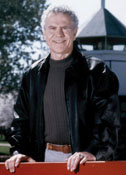 This Goodly Land
This Goodly Land
Homer Hickam (February 19, 1943–present)

Other Names Used
- Homer Hadley Hickam, Jr.: full name
- Sonny Hickam: name used as a boy
Alabama Connections
- Huntsville, Madison County: adult residence
Selected Works
- Hickam, Homer H., Jr. Torpedo Junction: U-Boat War Off America's East Coast, 1942. Annapolis: Naval Institute Press, 1989.
- Hickam, Homer H., Jr. Rocket Boys: A Memoir. New York: Delacorte Press, 1998. Rpt. as October Sky. New York: Island Books and Dell Pub., 1999.
- Hickam, Homer H., Jr. Back to the Moon: A Novel. New York: Delacorte Press, 1999.
- Hickam, Homer. The Coalwood Way. New York: Delacorte Press, 2000.
- Hickam, Homer. Sky of Stone. New York: Delacorte Press, 2001.
- Hickam, Homer. The Keeper's Son. New York: Thomas Dunne Books, 2003.
- Hickam, Homer. The Ambassador's Son. New York: Thomas Dunne Books, 2005.
- Hickam, Homer. Red Helmet. Nashville, Tenn.: Thomas Nelson, 2007.
- Homer Hickam. The Far Reaches. New York: Thomas Dunne Books, 2007.
Literary Awards
- Alabama Author Award, Alabama Library Association, 2001, for Rocket Boys: A Memoir
Biographical Information
Homer Hickam was born and raised in Coalwood, W.Va., a coal mining town. He wrote stories as a boy and read extensively, especially science fiction. One of Hickam’s boyhood heroes was the rocket scientist Dr. Wernher von Braun. After the launch of the Soviet satellite Sputnik in 1957, Hickam and a group of friends began building and launching their own rockets. Hickam attended Virginia Polytechnic Institute, writing for the college newspaper and graduating with a BS in Industrial Engineering in 1964. He served for six years in the US Army, including a tour of duty in Vietnam in the 1960s and an assignment in Puerto Rico where he learned to scuba dive. From 1971 to 1981, Hickam worked for the US Army Aviation and Missile Command in Huntsville, Ala., and in Germany. From 1981 until his retirement in 1998, he worked for the National Aeronautics and Space Administration (NASA) at the Marshall Space Flight Center in Huntsville, where his duties involved spacecraft design and astronaut training.
Hickam began his professional writing career in the 1970s and 1980s with magazine articles about scuba diving. Torpedo Junction, published in 1989, was inspired by the wrecks of ships he observed while scuba diving off the coast of North Carolina. In the mid-1990s, Hickam wrote a magazine article about his boyhood rocket experiments. The enthusiastic response led him to write Rocket Boys, which was published in 1998. A movie version, October Sky, was released in 1999. Since his retirement from NASA, Hickam has devoted his time to writing. He has published two more memoirs and several novels, the first of which, Back to the Moon, appeared in 1999. Hickam lives in Huntsville and the Virgin Islands.
Interests and Themes
Homer Hickam’s nonfiction work includes three memoirs of his boyhood in Coalwood, W.Va., a collection of oral histories from Coalwood residents, and a history of the World War II U-boat attacks on US shipping. His first novel was a thriller about a NASA scientist, and the protagonist of his most recent novels is a World War II Coast Guard officer.
For More Information
Please check your local library for these materials. If items are not available locally, your librarian can help you borrow them through the InterLibrary Loan program. Your librarian can also help you find other information about this author.
There may be more information available through the databases in the Alabama Virtual Library. If you are an Alabama citizen, AVL can be used at your public library or school library media center. You can also get a username and password from your librarian to use AVL at home.
Reference Articles
- "Eyes on the Skies". The American Enterprise May/June. 1999: 16-17.
- O'Briant, Erin. "Rocket Man". IEE Solutions 31.11. (1999): 20-21.
- Olson, Tod. "Rocket Boy". Literary Calvalcade 52.3. (1999): 6-7.
- Smith, Kyle, and Grace Lim. "Star Struck". People 19 Apr. 1999: 153-154.
Reference Web Sites
- Homer Hickam Online. 2004. http://www.homerhickam.com.
Photo courtesy of Homer Hickam.
Last updated on May 30, 2008.